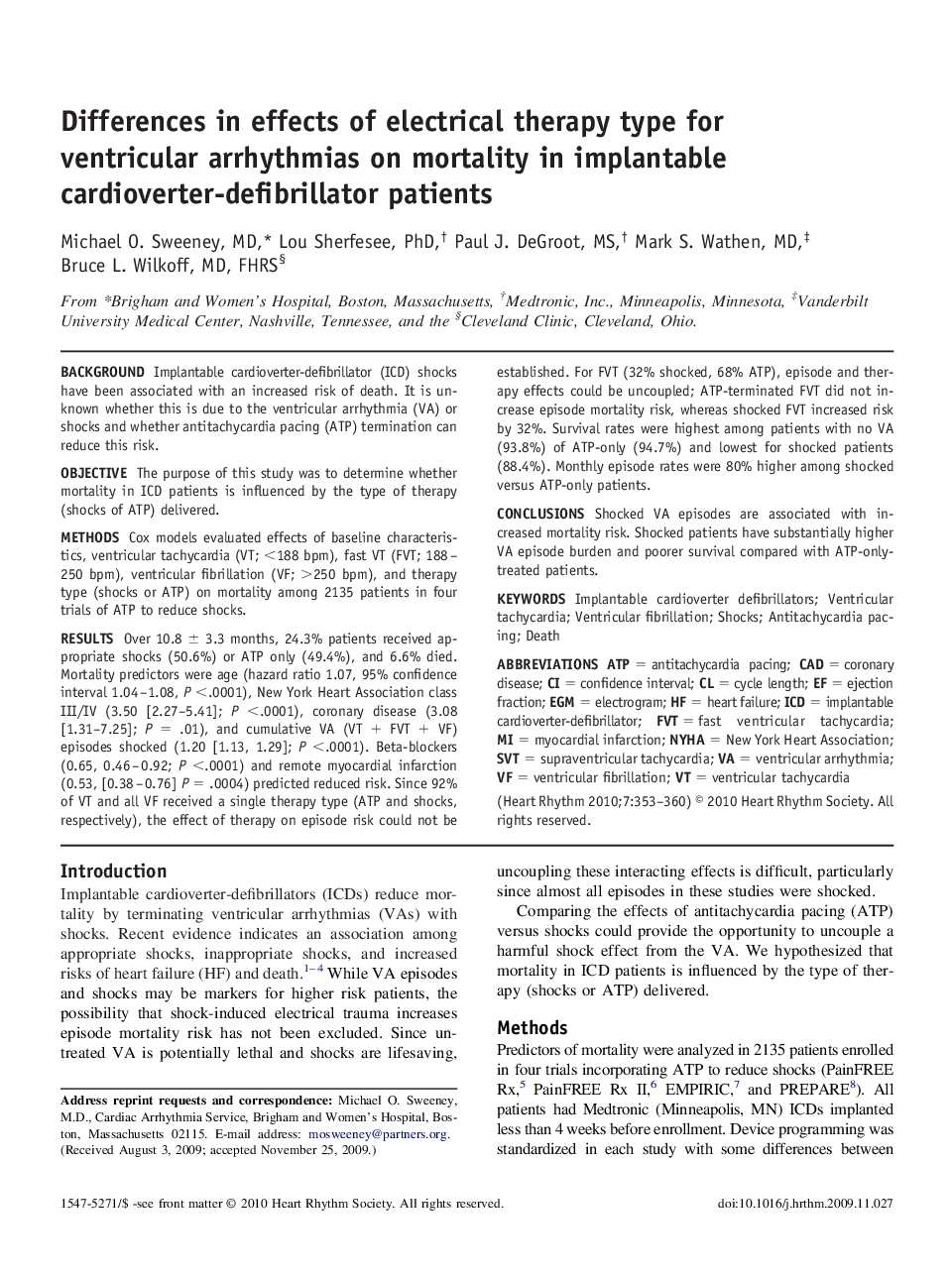| Article ID | Journal | Published Year | Pages | File Type |
|---|---|---|---|---|
| 2923908 | Heart Rhythm | 2010 | 8 Pages |
BackgroundImplantable cardioverter-defibrillator (ICD) shocks have been associated with an increased risk of death. It is unknown whether this is due to the ventricular arrhythmia (VA) or shocks and whether antitachycardia pacing (ATP) termination can reduce this risk.ObjectiveThe purpose of this study was to determine whether mortality in ICD patients is influenced by the type of therapy (shocks of ATP) delivered.MethodsCox models evaluated effects of baseline characteristics, ventricular tachycardia (VT; <188 bpm), fast VT (FVT; 188–250 bpm), ventricular fibrillation (VF; >250 bpm), and therapy type (shocks or ATP) on mortality among 2135 patients in four trials of ATP to reduce shocks.ResultsOver 10.8 ± 3.3 months, 24.3% patients received appropriate shocks (50.6%) or ATP only (49.4%), and 6.6% died. Mortality predictors were age (hazard ratio 1.07, 95% confidence interval 1.04–1.08, P <.0001), New York Heart Association class III/IV (3.50 [2.27–5.41]; P <.0001), coronary disease (3.08 [1.31–7.25]; P = .01), and cumulative VA (VT + FVT + VF) episodes shocked (1.20 [1.13, 1.29]; P <.0001). Beta-blockers (0.65, 0.46–0.92; P <.0001) and remote myocardial infarction (0.53, [0.38–0.76] P = .0004) predicted reduced risk. Since 92% of VT and all VF received a single therapy type (ATP and shocks, respectively), the effect of therapy on episode risk could not be established. For FVT (32% shocked, 68% ATP), episode and therapy effects could be uncoupled; ATP-terminated FVT did not increase episode mortality risk, whereas shocked FVT increased risk by 32%. Survival rates were highest among patients with no VA (93.8%) of ATP-only (94.7%) and lowest for shocked patients (88.4%). Monthly episode rates were 80% higher among shocked versus ATP-only patients.ConclusionsShocked VA episodes are associated with increased mortality risk. Shocked patients have substantially higher VA episode burden and poorer survival compared with ATP-only-treated patients.
